British populist Nigel Farage and his Brexit party have voted against stronger European Union measures aimed at countering “highly dangerous” Russian disinformation, the Guardian reports:
The party cast their votes against a European parliament resolution, calling for an upgrade of the EU’s anti-propaganda unit East StratCom, as well as support for public service media. The text passed comfortably with the support of the largest political groups in the European parliament: the centre-right European People’s party, Socialists, Liberals and Greens.
The vote came after a new report from the U.S. Senate Select Committee on Intelligence revealed “ample evidence to suggest that the Russian government was developing and implementing capabilities to interfere in the 2016 elections, including undermining confidence in U.S. democratic institutions and voting processes.”
 The disinformation wars [detailed in Richard Stengel’s book – right] are only just getting started, warns the analysis of Russian social media interference, WIRED magazine reports:
The disinformation wars [detailed in Richard Stengel’s book – right] are only just getting started, warns the analysis of Russian social media interference, WIRED magazine reports:
Published Tuesday, the report offers the most comprehensive look at the efforts of the now-infamous Russian propaganda factory known as the Internet Research Agency to divide Americans, undermine public faith in the democratic process, and aggressively support then-candidate Donald Trump before and after the 2016 election. In addition to affirming much of what had been reported about Russian online interference over the past three years… the report offers a comprehensive look at the extent of past foreign influence operations and recommendations on how best to prepare for those yet to come.
The second volume to emerge from the Intel Committee is “much more detailed in its analysis, meticulously cited, and concerned with influence and impact,” says Columbia University researcher Jonathan Albright, who first exposed the extent of some of the IRA’s efforts.
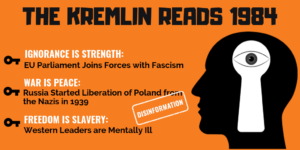
EUvsDisinfo
Russia’s influence operations were part of a “broader, sophisticated, and ongoing information warfare campaign” designed to divide America by inflaming cultural, political, and social tensions – and remain active today, the report says.
A top-secret elite Russian intelligence unit is executing a coordinated campaign to destabilize Europe, security officials told the New York Times:
Unit 29155, whose existence has not been reported until now, may have links to the secretive side of the so-called hybrid warfare promoted by Russia’s president, Vladimir Putin, in which open warfare is paired with a blend of propaganda, hacking attacks and disinformation.
A retired Russian intelligence officer with knowledge of Unit 29155 said that it specialized in preparing for “diversionary” missions, “in groups or individually — bombings, murders, anything.”
Globsec’s new Disinfo Portal (above) is an interactive online guide to the Kremlin’s disinformation campaigns which allows users to:
- Find and connect with experts by country, language, and expertise
- View stories, reports, and videos from our partners
- Explore in-depth country profiles
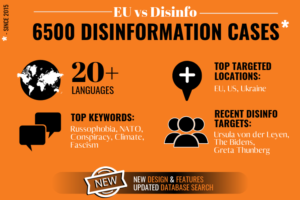 How to debunk over 6,500 disinformation cases in four years? EUvsDisinfo explains how it took hundreds of analyses, thousands of cases, people from more than 14 countries involved in the daily work, covering over 20 states and languages. See also this EUvsDisinfo case study on how an Indian group used U.S. and Russian content to disguise their interest through a misleading European Parliament magazine.
How to debunk over 6,500 disinformation cases in four years? EUvsDisinfo explains how it took hundreds of analyses, thousands of cases, people from more than 14 countries involved in the daily work, covering over 20 states and languages. See also this EUvsDisinfo case study on how an Indian group used U.S. and Russian content to disguise their interest through a misleading European Parliament magazine.
Joining Forces to Combat Disinformation: Cases and Regulatory Trends
Public Knowledge and the EU DisinfoLab you to join a panel discussion on transatlantic trends on disinformation mapping and regulation.
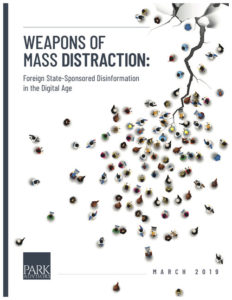 In this panel Alexandre Alaphilippe, the EU DisinfoLab Executive Director will share the Lab’s most recent study on the Suavelos network developed in cooperation with French media Le Monde. In this study, the EU DisinfoLab exposes the French white supremacist network that uses deceptive Facebook pages to attract visitors on their website to generate revenue from online advertisements, and sell racist products. Following this presentation, a panel will discuss the forthcoming regulation projects from an EU and US point of view:
In this panel Alexandre Alaphilippe, the EU DisinfoLab Executive Director will share the Lab’s most recent study on the Suavelos network developed in cooperation with French media Le Monde. In this study, the EU DisinfoLab exposes the French white supremacist network that uses deceptive Facebook pages to attract visitors on their website to generate revenue from online advertisements, and sell racist products. Following this presentation, a panel will discuss the forthcoming regulation projects from an EU and US point of view:
Panelists: Alexandre Alaphilippe – Executive Director, EU DisinfoLab (EU perspective); Chris Lewis – President, Public Knowledge; Alina Polyakova – Director, Project on Global Democracy and Emerging Technology, Brookings Institution.
Venue: Public Knowledge, 1818 N Street NW, Washington, DC 20912 United States + Google Map. October 22 @ 4:00 pm – 5:30 pm. RSVP
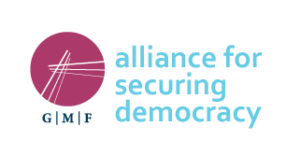 Former Federal Communications Commission Chairman Tom Wheeler brings his experiences on the frontlines of innovation, entrepreneurship, and regulation to provide a provocative look at today’s tech challenges, the German Marshall Fund adds. From Gutenberg to Google: The History of Our Future examines past historical disruptions and their effects on society to provide insight into current technology policy challenges, from AI to 5G to disinformation. This book talk is the next in a series run by the Digital Innovation & Democracy Initiative. The initiative leverages GMF’s extensive networks to develop strategies that advance innovation and strengthen democratic values.
Former Federal Communications Commission Chairman Tom Wheeler brings his experiences on the frontlines of innovation, entrepreneurship, and regulation to provide a provocative look at today’s tech challenges, the German Marshall Fund adds. From Gutenberg to Google: The History of Our Future examines past historical disruptions and their effects on society to provide insight into current technology policy challenges, from AI to 5G to disinformation. This book talk is the next in a series run by the Digital Innovation & Democracy Initiative. The initiative leverages GMF’s extensive networks to develop strategies that advance innovation and strengthen democratic values.
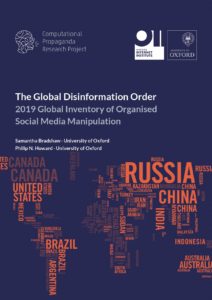 Discussant: Tom Wheeler, Former Chairman, Federal Communications Commission; Visiting Fellow, The Brookings Institution; Senior Fellow, Harvard Kennedy School of Government
Discussant: Tom Wheeler, Former Chairman, Federal Communications Commission; Visiting Fellow, The Brookings Institution; Senior Fellow, Harvard Kennedy School of Government
Moderator: Karen Kornbluh, Director and Senior Fellow, Digital Innovation and Democracy Initiative, German Marshall Fund of the United States
Venue: The German Marshall Fund of the United States, 1744 R Street NW, Washington, DC 20009 RSVP
How can we tackle “fake news”, propaganda, and disinformation to protect democratic voice? was the theme of a panel discussion organised by the Albert Hirschman Centre on Democracy as a part of the Geneva Democracy Week (below), featuring four panelists: Ana Arana Antelo (European Commission, DG Research and Innovation), Flavia Kleiner (Operation Libero, Switzerland), Anna Leander (Graduate Institute) and Mohammad-Mahmoud Ould Mohamedou (Graduate Institute). The event is moderated by Shalini Randeria, Director of the Graduate Institute’s Albert Hirschman Centre on Democracy.







